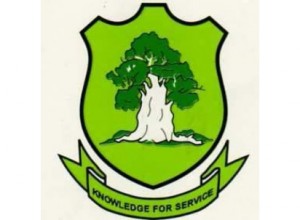Professor Nokoe against split of UDS
 Professor Kaku Sagary Nokoe, the former Acting Vice Chancellor of the University Development Studies (UDS), has called on Government not to split the institution into an autonomous university.
Professor Kaku Sagary Nokoe, the former Acting Vice Chancellor of the University Development Studies (UDS), has called on Government not to split the institution into an autonomous university.
He asked the government to consider the financial implications and rationale behind its establishment.
Prof Nokoe stated: “The rationale and the beauty of the unique community-based residency third trimester programme must not be tempered with. It is a model that is envied and being replicated elsewhere.
“The beauty of composing teams from various campuses to work together, share relevance of various disciplines towards solving community-specific problems should be sustained. This will be difficult doing so across autonomous institutions.”
Prof Nokoe said this in a statement copied to the Ghana News Agency in Accra on Tuesday.
He said the news that the former President John Dramani Mahama’s Administration was almost at the point of splitting UDS into four autonomous universities was worrying and sad indeed whilst it was equally difficult to fathom rumour that the New Patriotic Party (NPP) government had resolved to pursue the agenda.
“An obvious solution might be for the Academic Board and University Council to take advantage of provisions (or loopholes) in the Act to have the campuses assume semi-autonomous status with Rectors or Principals, with the main campus of Tamale having a Vice-Chancellor (for UDS) and Principal (Tamale Campus) – but with only one Academic Board and one Council.
“Let UDS remain a state (national) institution, not regional, not ethnic run institutions. Let us add value, not take away from it,” he said.
He said the discussion towards the tail end of NDC Administration and which seemed to have made grounds during the NPP campaign indicated a considerable shift in thinking from that of the founder of UDS, ex-President Jerry John Rawlings, and from those outside the regions who admired the initiative.
He said the present structure where Navrongo (Upper East) is for Natural and Mathematical Sciences; Nyankpala (Northern) for Agriculture, Natural Resources and Consumer Studies; Tamale (Main Administration, Northern) for Medical and Health Sciences (in addition to coordination of graduate plus education) and Wa (Upper West) for Social and Development Studies were good examples to be replicated.
“These campuses may then be upgraded by introducing and/or strengthening programmes in line with the core disciplines, example Agricultural Engineering at the Nyankpala campus among others.
“At present there is more inter-institutional (campus) collaboration (and student/staff mobility) than one would expect among fully autonomous institutions.
“President Nana Addo Dankwa Akufo-Addo needs not pursue this task of destruction even if his party manifesto said so. There is nothing wrong to revive the notes. The University of the West Indies is an example.
“What is wrong with the University expanding vertically through the creation of more programmes, schools or faculties within existing campuses?
“What prevents the government from creating other universities if it has the resources or empowering the Polytechnics, which are now or in the process of assuming technical universities status rather than destroy the beauty of UDS.
“One would expect individual interests in this fight for separate (regional) universities – precisely the fight for control of the institutions by the larger ethnic groupings and obviously influencing the choices of Vice-Chancellors and Rectors, contractors and the like.
“There will surely be support from within and outside but the financial cost from splitting will be enormous, Consider, for instance, obvious increases in overhead costs and so on.
“Should we not care about costs? Is it increasing number of institutions, that cannot reasonably stand on their own (as there are limited state funds) that will spread development? Is it numbers that make for efficiency?
“I have seen the University grow over difficult periods, and had on some occasions advised against establishing ethic-based and ethnic-run institutions.
He therefore urged the government to strengthen the institution with infrastructure, staff development funds and government supported initiatives, such as provision of specialist staff from ‘sister’ countries as President Kufuor and his NPP administration had done in the past.
Source: GNA
